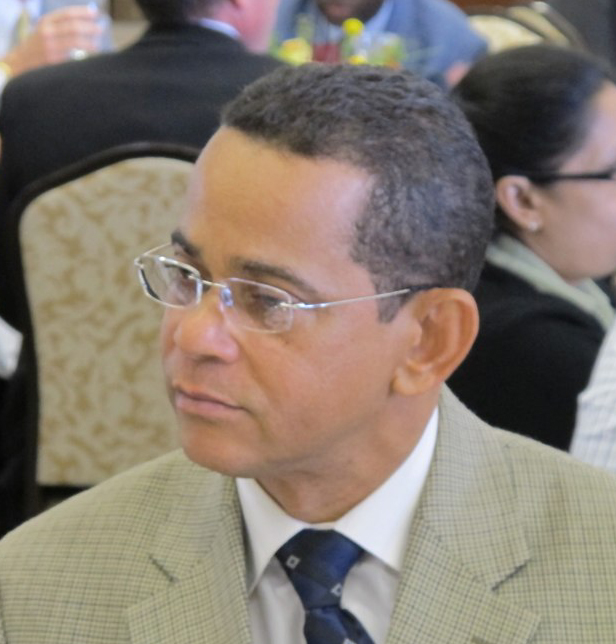Dominican Republic – Victor Orlando Bisonó, José Rafael Vargas, Eugenio Cedeño

Martha Branigan Sutton
ICLRS Research Advisor
Dominican Republic delegates Victor Orlando Bisonó Haza, Deputy, National Congress; José Rafael Vargas Pantaleón, Senator; and Eugenio Cedeño Areché, Deputy, National Congress, spoke at the 18th Annual International Law and Religion symposium on October 3, 2011. They provided insights on the religious freedom portions of their new constitution which provides for protection of a person’s rights to liberty of conscience and religion. They drew attention to the country’s coat of arms which still contains a cross and Bible displaying a popular scripture reflective of the Spanish colonization and continuing presence of the Catholic Church. Despite criticism of the Catholic Church’s continuing privileges and overall dominance the presenters stated that the country is making inroads toward religious equality and equality of practice for non-Catholic religions and not mere tolerance.
Perhaps the constitution’s most striking feature is that it allows marriages performed by state recognized churches to have civil effect negating the need for a couple to acquire a separate civil license. This provision has been pointed to by other countries as a possible model which empowers churches and prevents unnecessary duplication of effort.
The presenters indicated that there is a small presence of various religions other than the Catholic religion with an increasing presence of voodoo and witchcraft introduced by the migrating Haitians. They stated that they are making inroads in their country to provide freedom of religion and equality as the presence of various religions increase and acknowledge that although non-Catholic religions do not enjoy equality with the Catholic Church, presently they do have freedom to practice and progress is being made toward full enfranchisement of all religions. Mr. Pantaleon stated, “There is not peace in religion without dialogue. No dialogue without global standards.” Dialogues such as those provided in this symposium are necessary to understand and influence global standards.